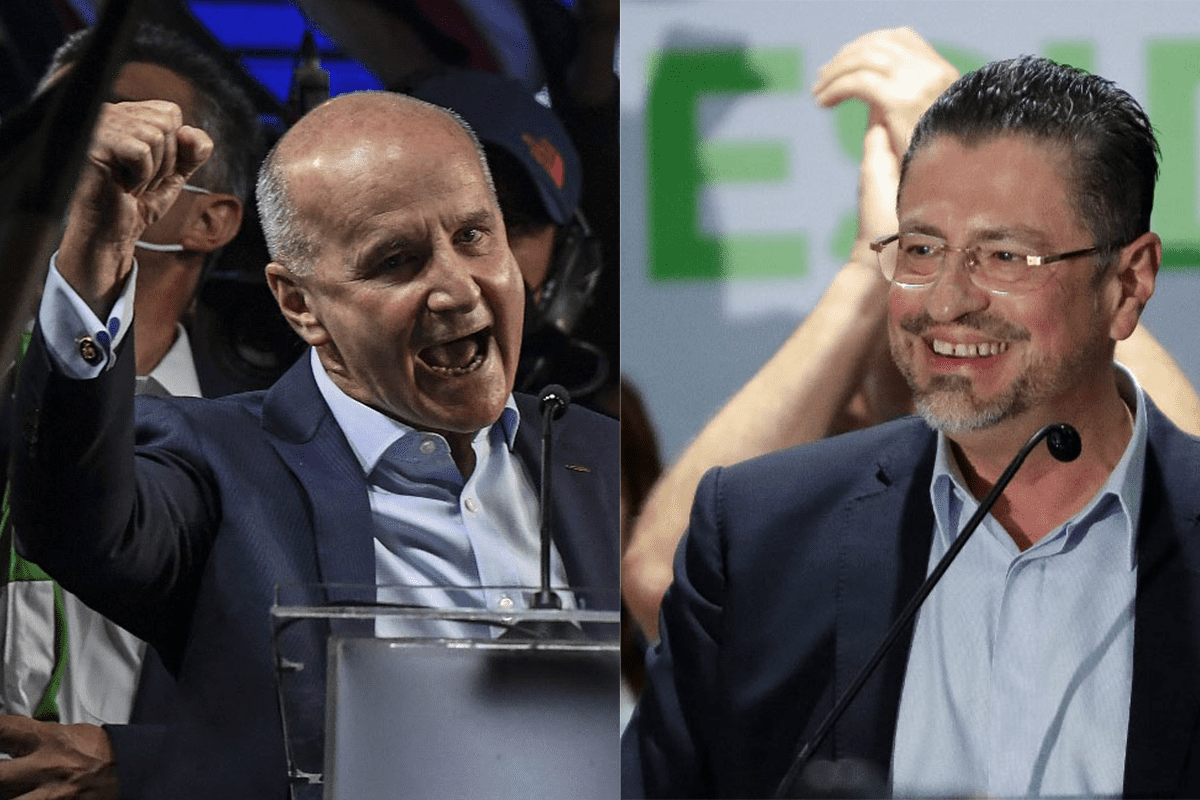Costa Rica elects its next president on Sunday in a ballot between conservative Rodrigo Chaves, a former minister sanctioned for sexual harassment, and centrist José María Figueres, a former president whose bid to return to power is tainted by corruption accusations.
Chaves, a doctor in Economics who occupied for 180 days the Treasury portfolio of the outgoing government, and with 30 years of career in the World Bank, leads by more than three points in the polls with the new Social Democratic Progress Party (PPSD).
He faces the centrist José María Figueres, who already governed the country (1994-1998) with the traditional National Liberation Party (PLN).
“It is very difficult to pull out with tweezers what Figueres or Chaves want to do. As a society, we have lost the primary focus: to elect someone who will lead the country and not on issues of questioning”, considered economist and analyst Daniel Suchar.
Reactivate the economy
Figueres, 67, and Chaves, 60, assure that they will solve the main problems, such as the foreign debt, equivalent to 70% of the GDP, high poverty rates (23%), unemployment (14%) and corruption scandals in the public sector.
But without a majority in Congress, whoever wins will have to negotiate with the rest of the parties to implement their plans.
The pandemic hit tourism, one of Costa Rica’s main economic engines, a leader in environmental protection and with great natural attractions.
“The priority at the moment is to lift the economy, to reactivate it (…) to look for job options for the large number of unemployed people,” auditor Andres Fonseca, 35, told AFP in the capital San Jose.
Costa Rica is the “happiest” country in Latin America, according to the most recent World Happiness Report, but also the one that suffered one of the biggest drops in employment in the region between 2019 and 2020 (-14%), along with Peru.
For analyst Alejandro Molina, from the Observatory of National Policy of the University of Costa Rica (OPNA-UCR), “at the socioeconomic level the country is extremely deteriorated. Even before the pandemic, with structural unemployment and the weak situation of public finances”.
3.5 million of the five million Costa Ricans are called to the polls.
Chaves leads the most recent polls with 41.8% of the voting intentions, while Figueres obtains 38% of the support. As of March 30, there is still 18% of undecided voters, three points more than at the beginning of the month.
Chaves and harassment
With his slogan “Me como la bronca” [I take on the fight] Chaves has gained an image of willingness to face the country’s problems.
“April 3 is going to be a real revolution in the history of this homeland. We are going to clean house,” he said at a final rally.
“I hope he will be the salvation (…). Those who criticize him surely are not in the economic situation that the majority of the population is in”, said Rolando Gutiérrez, one of his supporters.
But his candidacy is tainted by controversy.
Chaves was investigated and reprimanded by the World Bank for sexual harassment behavior towards two female subordinates between the years 2008 and 2013, although he alleges they were “jokes” misinterpreted “due to cultural differences.”
“The ones who lose the most are the women,” considered analyst Gina Sibaja.
“I think Chaves is here because of a boomerang effect. He was victimized by his sanction and generated empathy, mainly among men, given that harassment in Costa Rica is daily bread.”
Figueres and corruption
Figueres, an industrial engineer and consultant who was president between 1994 and 1998 and is the son of another president, José Figueres Ferrer, who abolished the army in 1948, seeks to return to power with the slogan “Experience to progress”.
“This election is different from all the previous ones (…) we are playing for our future”, he said in his campaign closing.
“I am voting for Figueres because Costa Rica needs a change. The economy has been destroyed and there is no clear line or good decision making”, said a supporter, Karla Zúñiga.
He was investigated but not prosecuted for allegedly receiving US$900,000 in 2004 from the French company Alcatel, which agreed to bribe public officials to obtain bids.
He refused to testify in court in the case and did not return to Costa Rica until the statute of limitations expired in 2011.
by Moises AVILA / David GOLDBERG






